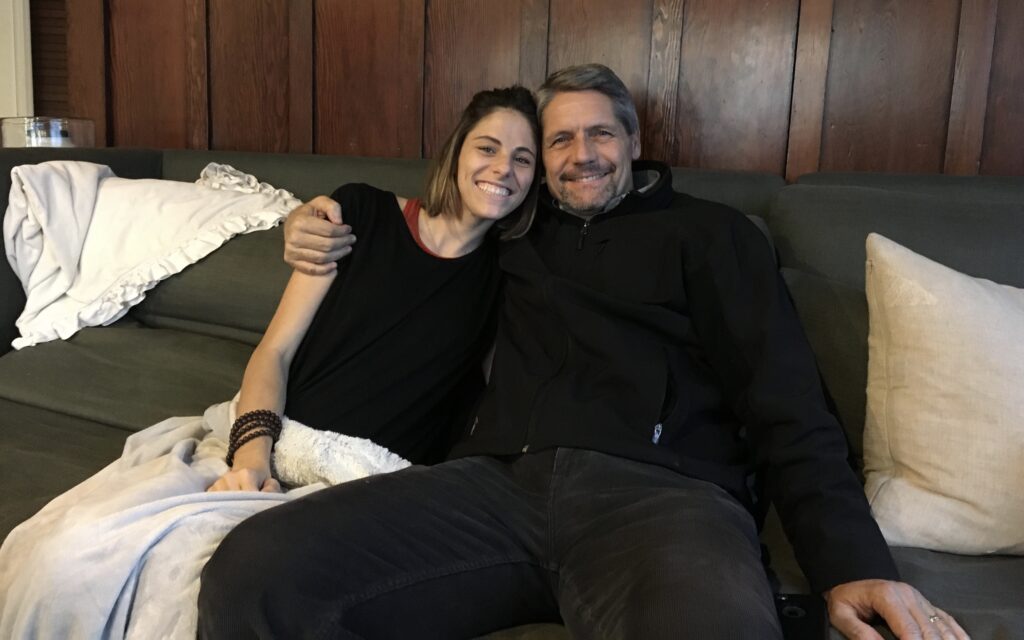
Coronado dad, David Waitley, and one of his seven daughters, Sydney, now share more than love, they share ownership of a kidney. Making for a tender Christmas Day homecoming, Sydney came home from the hospital after receiving the life-saving kidney from her father.
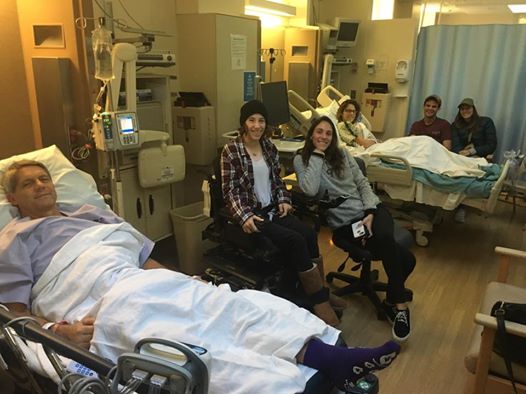
Sydney is one of four natural “quads,” as the family affectionately calls these identical sisters. Many Coronado residents have probably seen these happy young women around town.
At birth Sydney was the smallest of the four girls (1 pound 12.2 ounces) and did have some kidney distress when born. Fortunately, the kidney distress corrected itself before Sydney came home from the hospital. As a child and teenager, there was no reason to worry that her kidneys would trouble her again. The usual risk factors for kidney disease are diabetes and high blood pressure in people over 60.
When Sydney was 19 years old and starting school in Washington, pain brought her into the emergency room at the local hospital. After running some tests, the doctors were concerned. Ultimately they determined that Sydney’s kidneys were failing. The decision was made for Sydney to return to Coronado.
Sydney’s kidneys were at Stage 3 kidney disease. This level of kidney failure does not allow the kidneys to do what is necessary for life. Kidneys filter waste and extra water from our blood to form urine and rid our bodies of the waste. Kidneys also regulate blood pressure and help absorb glucose, amino acids, and water. These functions were barely happening in Sydney’s body.
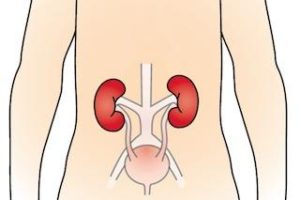
Sydney needed a kidney transplant or was going to have to commit to dialysis to stay alive. Dialysis is a treatment where patients are connected to a machine that will filter their blood since the kidneys aren’t doing it. This process takes approximately four hours and has to be repeated about three times a week.
Sydney’s parents did not want her to start dialysis, nor did they want her on a long waiting list for a kidney. Most kidney donations come from the deceased. These kidneys (donated from the deceased) do not last as long as a kidneys from living donors. Living donor kidneys last about fifteen years; kidneys from deceased donors last about twelve years. As her dad David put it, “I did what any parent would do, which is to do anything for their child.” Luckily, David was a better than usual match.
As Sydney and her sisters are quadruplets, her sisters may have been perfect matches, but David explained that it was a better decision for him to donate. At 53, he preferred to be the one to live with one kidney rather than his daughters, who are in their 20s. He explained that his one remaining kidney will grow larger to make up for the one he is now missing. Another reason he wanted to be the donor is that strong kidney function is necessary during pregnancy. His daughters may want to become mothers one day and he wouldn’t want their health to be compromised. His wife, Heidi, is a breast cancer survivor so she was ineligible to donate.
The simultaneous surgeries were completed on December 19, 2016. Sydney explained that the kidneys are at the back of the abdomen so it’s a little more tricky than some other surgeries. Post-surgery pain can be more acute in the donor than in the recipient. David said that after the surgery he felt like he had been beaten up. Part of that is due to the fact that the doctors have to position you awkwardly during the 3 hour surgery, and partly because they have to fill your abdominal cavity with air, so that they can get at the kidneys.
Sydney explained that she is on a long regimen of medication. She also has to be extremely careful to stay healthy since her immune system has been suppressed to ensure that her body accepts her father’s kidney. She also said that the doctor was honest with her: she will at some point need another kidney. At 21 years old, Sydney’s resilience in the face of her diagnosis is impressive.
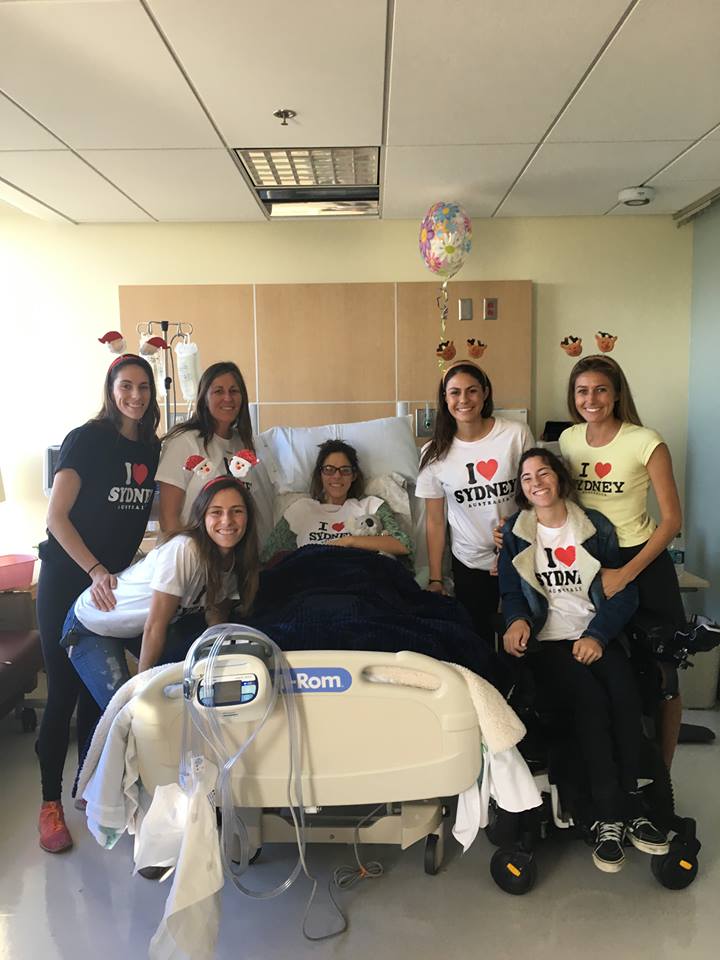
True to the Waitley family’s enduring spirit, one that is very much grounded in their Christian faith, David and Sydney said that there have been many rewards and insights from this experience.
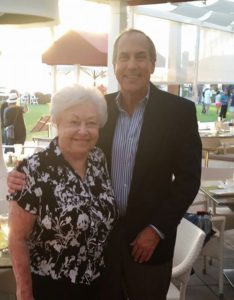
One of the rewards has been to make new Coronado friends. While standing in line at Vons, David started chatting with Coronado High School graduate and resident, David Scannell. David Waitley learned that David Scannell also experienced unexpected kidney failure in his 30s and received a kidney from a donor in the summer of 2009. While the two men only knew each other casually before that conversation, David Scannell turned into a source of support and experience for both David and Sydney. David Waitley said, “David is an incredible man. One evening, when Sydney’s surgery was potentially going to be delayed, I called David and said I really need to talk about my concerns. He put everything aside and supported me.”
Another positive outcome was realizing that some of the charming childhood memories of Sydney now make sense. The Waitleys learned that when someone’s kidneys are compromised they often experience a metallic taste in their mouth. David laughed that he and Heidi used to tease Sydney that she was a “texurtarian” because the texture of foods really impacted what she liked to eat.
David said he also had a renewed appreciation for his own health. He reflected that if he had had health issues, he wouldn’t have been able to give that life-saving kidney to his daughter.
With that gratefulness for our health introduced into our conversation, I asked David about his visible commitment to health and healing in our Coronado community – his sponsorship of Coronado Blood Drives. About every eight weeks, David has the Blood Bank bring their mega-trailer to the Union Bank (on Orange Avenue and Eighth Street) parking lot where Coronado residents can donate blood without going off the island. David noted that about 30% of folks who are willing are able to actually donate blood. The most common reason that women are unable to donate is that they are low on iron. I also learned that each donation can save up to three lives. So the next time David sponsors a Coronado Blood Drive, head over and donate.




